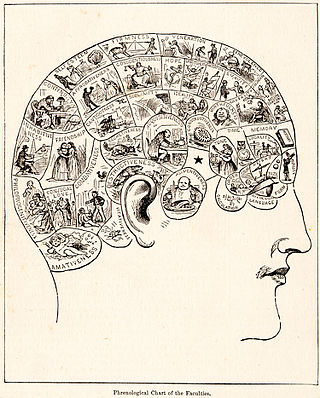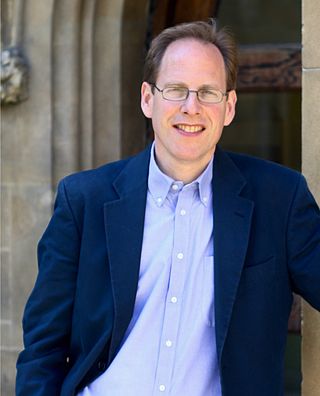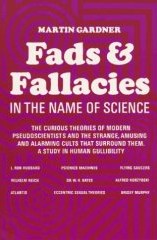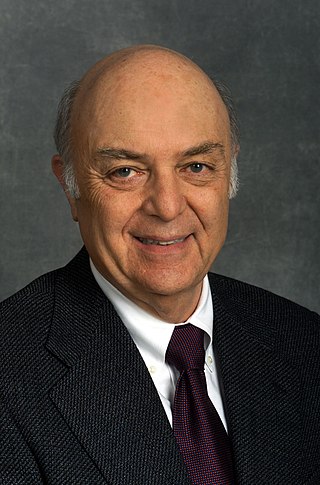Related Research Articles
Paul Joseph Cohen was an American mathematician. He is best known for his proofs that the continuum hypothesis and the axiom of choice are independent from Zermelo–Fraenkel set theory, for which he was awarded a Fields Medal.

Pseudoscience consists of statements, beliefs, or practices that claim to be both scientific and factual but are incompatible with the scientific method. Pseudoscience is often characterized by contradictory, exaggerated or unfalsifiable claims; reliance on confirmation bias rather than rigorous attempts at refutation; lack of openness to evaluation by other experts; absence of systematic practices when developing hypotheses; and continued adherence long after the pseudoscientific hypotheses have been experimentally discredited. It is not the same as junk science.

Pseudohistory is a form of pseudoscholarship that attempts to distort or misrepresent the historical record, often by employing methods resembling those used in scholarly historical research. The related term cryptohistory is applied to pseudohistory derived from the superstitions intrinsic to occultism. Pseudohistory is related to pseudoscience and pseudoarchaeology, and usage of the terms may occasionally overlap. Although pseudohistory comes in many forms, scholars have identified many features that tend to be common in pseudohistorical works; one example is that the use of pseudohistory is almost always motivated by a contemporary political, religious, or personal agenda. Pseudohistory also frequently presents sensational claims or a big lie about historical facts which would require unwarranted revision of the historical record.
Magical thinking, or superstitious thinking, is the belief that unrelated events are causally connected despite the absence of any plausible causal link between them, particularly as a result of supernatural effects. Examples include the idea that personal thoughts can influence the external world without acting on them, or that objects must be causally connected if they resemble each other or have come into contact with each other in the past. Magical thinking is a type of fallacious thinking and is a common source of invalid causal inferences. Unlike the confusion of correlation with causation, magical thinking does not require the events to be correlated.

Ian Nicholas Stewart is a British mathematician and a popular-science and science-fiction writer. He is Emeritus Professor of Mathematics at the University of Warwick, England.
Fringe science refers to ideas whose attributes include being highly speculative or relying on premises already refuted. Fringe science theories are often advanced by people who have no traditional academic science background, or by researchers outside the mainstream discipline. The general public has difficulty distinguishing between science and its imitators, and in some cases, a "yearning to believe or a generalized suspicion of experts is a very potent incentive to accepting pseudoscientific claims".
International political economy (IPE) is the study of how politics shapes the global economy and how the global economy shapes politics. A key focus in IPE is on the distributive consequences of global economic exchange. It has been described as the study of "the political battle between the winners and losers of global economic exchange."
In philosophy of science and epistemology, the demarcation problem is the question of how to distinguish between science and non-science. It also examines the boundaries between science, pseudoscience and other products of human activity, like art and literature and beliefs. The debate continues after more than two millennia of dialogue among philosophers of science and scientists in various fields. The debate has consequences for what can be termed "scientific" in topics such as education and public policy.

Sir Simon Philip Baron-Cohen is a British clinical psychologist and professor of developmental psychopathology at the University of Cambridge. He is the director of the university's Autism Research Centre and a Fellow of Trinity College.

Robert Jervis was an American political scientist who was the Adlai E. Stevenson Professor of International Politics in the Department of Political Science at Columbia University. Jervis was co-editor of the Cornell Studies in Security Affairs, a series published by Cornell University Press.

Fads and Fallacies in the Name of Science (1957)—originally published in 1952 as In the Name of Science: An Entertaining Survey of the High Priests and Cultists of Science, Past and Present—was Martin Gardner's second book. A survey of what it described as pseudosciences and cult beliefs, it became a founding document in the nascent scientific skepticism movement. Michael Shermer said of it: "Modern skepticism has developed into a science-based movement, beginning with Martin Gardner's 1952 classic".

Robert Owen Keohane is an American academic working within the fields of international relations and international political economy. Following the publication of his influential book After Hegemony (1984), he has become widely associated with the theory of neoliberal institutionalism in international relations, as well as transnational relations and world politics in international relations in the 1970s.
Shaye J. D. Cohen is an American Hebraist, historian, and rabbi. He is a modern scholar of Hebrew Bible. Currently, he is the Littauer Professor of Hebrew Literature and Philosophy in the Department of Near Eastern Languages and Civilizations of Harvard University.
Robert Gilpin was an American political scientist. He was Professor of Politics and International Affairs at the Woodrow Wilson School of Public and International Affairs at Princeton University where he held the Eisenhower professorship.
Pseudoscientific language comparison is a form of pseudo-scholarship that aims at establishing historical associations between languages by naïve postulations of similarities between them.

Marvin Lou Cohen is an American–Canadian theoretical physicist. He is a physics professor at the University of California, Berkeley. Cohen is a leading expert in the field of condensed matter physics. He is widely known for his seminal work on the electronic structure of solids.
A fringe theory is an idea or a viewpoint which differs significantly from the accepted scholarship of the time within its field. Fringe theories include the models and proposals of fringe science, as well as similar ideas in other areas of scholarship, such as the humanities. In a narrower sense, the term fringe theory is commonly used as a pejorative, roughly synonymous with the term pseudo-scholarship. Precise definitions that make distinctions between widely held viewpoints, fringe theories, and pseudo-scholarship are difficult to construct because of the demarcation problem. Issues of false balance or false equivalence can occur when fringe theories are presented as being equal to widely accepted theories.

Gopal Prasad is an Indian-American mathematician. His research interests span the fields of Lie groups, their discrete subgroups, algebraic groups, arithmetic groups, geometry of locally symmetric spaces, and representation theory of reductive p-adic groups.
Ronald H. Fritze is an American encyclopedist, historian, and writer known for his criticism of pseudohistoric ideas.
Sosates was an Alexandrian Jew who wrote epic poetry in Greek and flourished during the 2nd or 1st century BC.
References
- ↑ Jerome V. Jacobsen, "Notes and Comment: Pseudo-scholarship", Mid-America: An Historical Review, Volumes 23–24, (Chicago: Loyola University, 1941) p. 315
- Steve J. Stern, "Between Tragedy and Promise", in Gilbert Michael Joseph, Reclaiming the Political in Latin American History (Durham, NC: Duke University Press, 2001) p. 33
- Shaye J. D. Cohen, "In Memoriam Morton Smith", in Shaye J. D. Cohen, Studies in the Cult of Yahweh, Vol. 2: New Testament, Early Christianity, & Magic (Leiden: BRILL, 1996) p. 285
- ↑ Marshall Fishwick, American Studies in Transition (Boston: Houghton Mifflin, 1969) p. 265-266
- ↑ Jeremy Bernstein, A Comprehensible World: On Modern Science and Its Origins, 2nd ed. (New York: Random House, 1967) p. 193